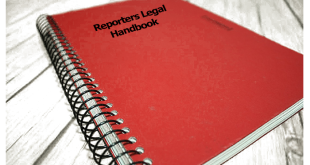When you are denied access to what you believe should be a public record you should get and keep certain information:
1.) What precisely did you request? (The best record is a request letter, like one available here).
2.) When and where did you make the request?
3.) To whom did you make the request?
4.) Who responded to your request, when and where and in what format? (If the response was oral, ask for one in writing).
5.) What were you given in response to that request? (If you made several different requests ask the person providing documents to identify which materials respond to which request).
6.) To what documents were you refused access? (Try to obtain as specific a description as possible). On what basis has access to each such document or category of documents been refused? (Try to get the person refusing access to be as specific as possible).
7.) Are there any documents or files to which access could be given if privileged portions were removed? If so, will the person providing access to do or seek permission to do so? From whom do they need to obtain permission and what are the standards for granting it?
Complaining To The District Attorney
The District Attorney of the county where a violation occurred has jurisdiction to try an open records violation.
There is not a great likelihood of action by a DA in many cases, because often the violator is a body which acts on advice of the District Attorney’s office. There are, however, some District Attorneys who understand the law and are willing to enforce it. In any case, it does no harm to ask.
How To Involve Counsel
On occasion, when a District Attorney is unwilling to help you obtain records, the mere appearance of private counsel may help persuade the DA to become involved in order to avoid a lawsuit, or may convince the record-holding body that the game’s not worth the candle.
Check with your editor or publisher.
Civil Law Suits to Obtain Records
Under Nevada law, a person who has been denied access to a record may file a private lawsuit to require that it be provided. (NRS §239.011) It should be preceded by a formal demand letter.
In Nevada, there has been limited private litigation to enforce open records rights. That hesitancy was based largely on the expense of litigation and the generally unlimited litigation budget of potential governmental defendants. Nevada law now provides that a successful plaintiff in an open records suit may be awarded costs and attorney’s fees. (NRS §239.011) Nevertheless, the litigation is still often expensive and protracted and comes with no guaranteed results. When you can convince the District Attorney to handle the case, you should strongly considering doing so.
 Nevada Press Association The best in Nevada journalism since 1924
Nevada Press Association The best in Nevada journalism since 1924


